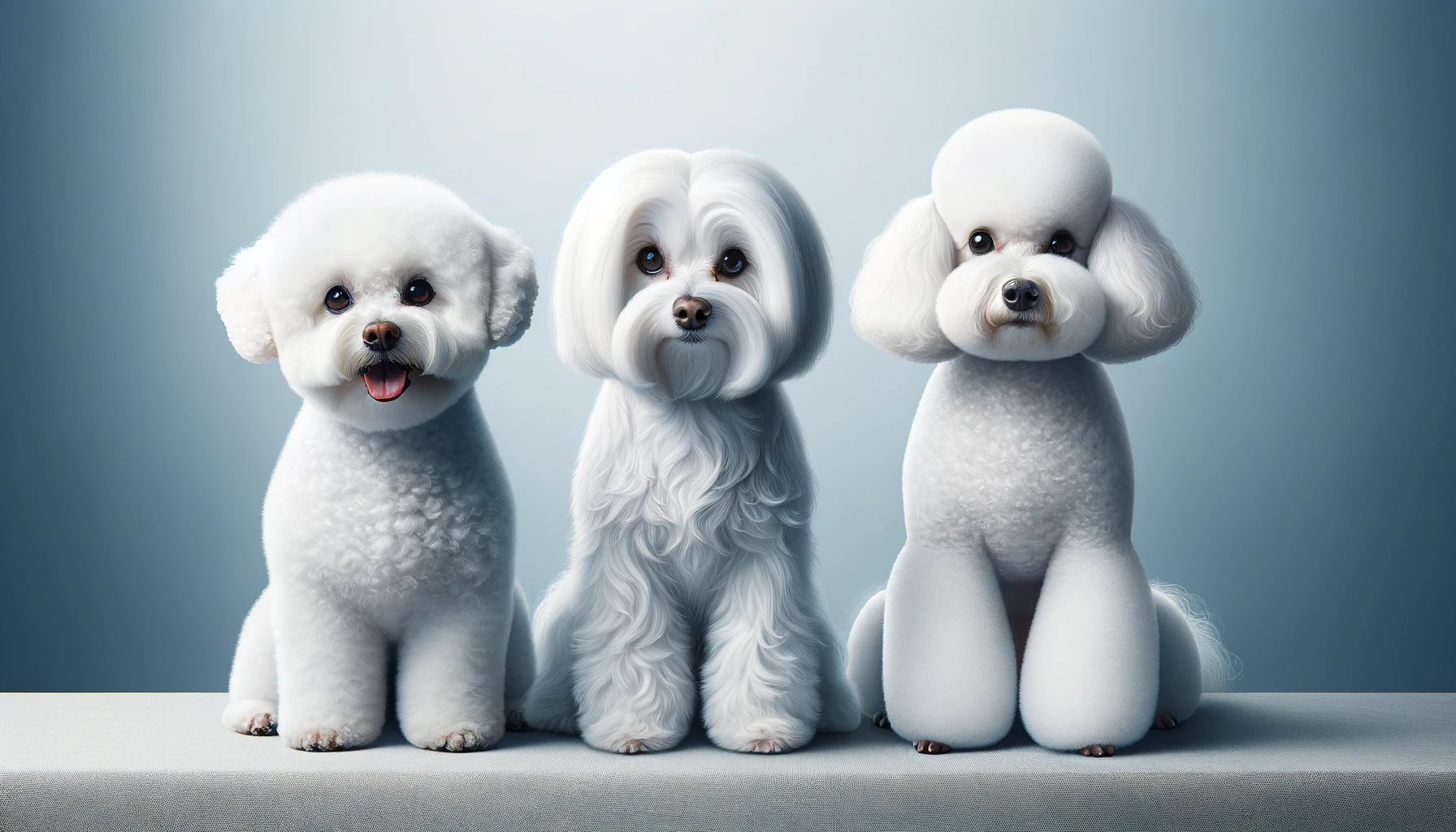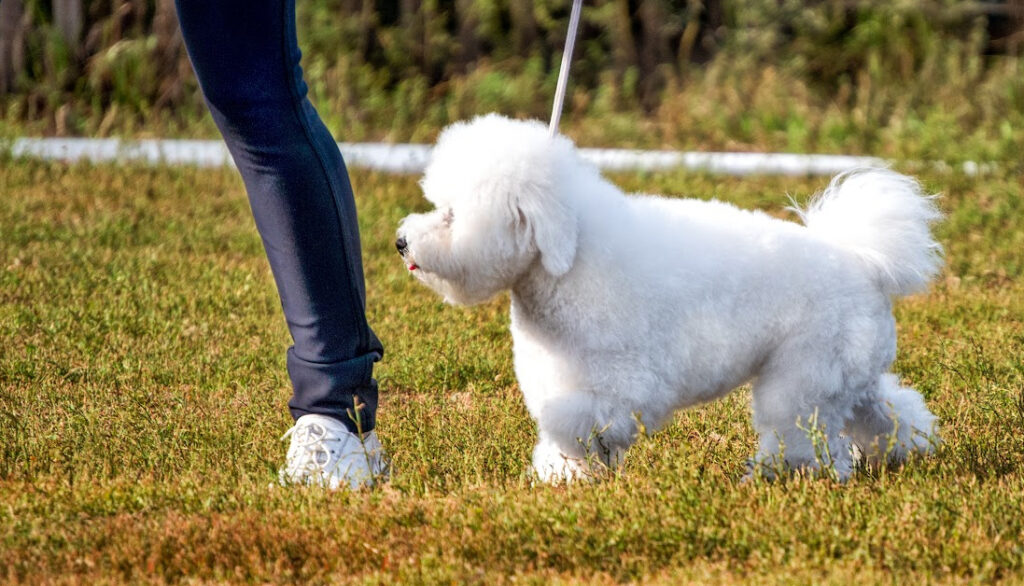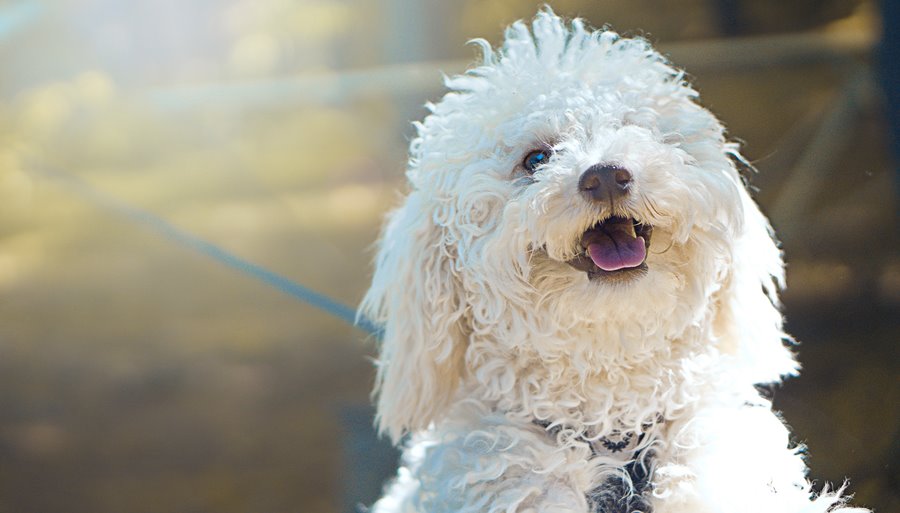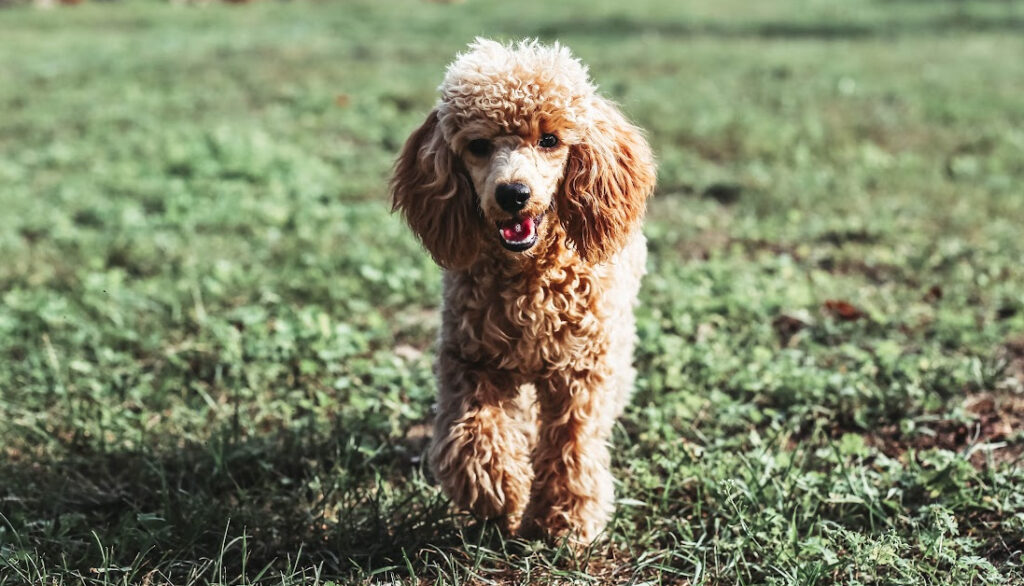“As a holistic veterinarian, I often hear from busy families and individuals looking for a furry friend that’s easier to care for. They’re on the hunt for the cleanest dog breeds – pups with less drool, minimal shedding, and a knack for keeping their personal space tidy. If you resonate with this, you’re in luck. In this article, I’ve put together a comprehensive guide to help you find your low-maintenance companion.”

Choosing a clean dog breed goes beyond the preference for a clean home. It’s important for those with allergies, those who have minimal time for grooming, and those who simply prefer a less messy pet. In essence, a clean breed can make pet ownership a more seamless and pleasant experience. Additionally, having a clean dog breed in your home can significantly reduce the amount of time and effort required for cleaning, leaving you with more quality time to spend with your four-legged friend.
Various factors contribute to a dog breed’s cleanliness. For instance, some breeds shed less, which cuts down on the amount of dog hair that ends up on your furniture, clothing, and around your home. Others drool less, reducing the wet surprises you might find on your floors or furniture. And let’s not forget about odor – certain breeds are simply less smelly than others!
In this guide, we’ll explore the top cleanest dog breeds for a tidy home, and understand breed-specific cleanliness traits. How does cleanliness impact your lifestyle and home environment? I’ll also share a listicle of specific small-sized to large-sized breeds known for their cleanliness and provide tips on how to maintain your dog’s cleanliness with regular grooming routines, dental care, and more. As a bonus, we’ll delve into some basic house and behavioral training tips to enhance your dog’s cleanliness. Finally, we’ll discuss how to choose the right clean dog breed for your family, considering lifestyle needs and compatibility with children and other pets.
Ready to embark on this journey to discover the cleanest dog breeds? Let’s dive in!
Dive into the world of dog breeds and uncover the mystery behind the cleanest ones! You are about to discover the key contributors to a dog breed’s cleanliness. This knowledge will not only help you in making an informed decision when choosing your next furry friend but also enhance your pet parenting skills. Let’s dive in!
Shedding and Grooming Requirements
Firstly, let’s discuss shedding and grooming requirements. The amount of fur your dog sheds plays a crucial role in the overall cleanliness of your home.
Dog breeds that shed less often require lesser grooming and keep your home cleaner. One great example is the Poodle, renowned for its minimal shedding. In contrast, breeds like the Akita and Siberian Husky shed a lot and might not be the best fit if you’re aiming for a fur-free home.
Grooming requirements also take center stage when considering the cleanest dog breeds. Some breeds, like the Shih Tzu, require regular grooming due to their long hair – failing to do so can lead to tangles and mats. On the other hand, breeds like the Beagle have a short coat that requires less maintenance, making them one of the cleaner breeds.

Drool and Odor Considerations
Moving on to another significant factor – drooling and odor. While many adore the slobbering kisses of their dogs, drool can contribute to a messier home. Breeds like the Saint Bernard and Bulldog are known for their heavy drooling. If you prefer a drier dog, breeds like the Basenji, known as the “barkless dog,” drool less.
The natural odor of a breed is another factor to keep in mind. Some breeds, such as the Basset Hound, have a stronger natural scent due to their oily skin. In contrast, others like the Doberman Pinscher are known for having minimal doggy odor.
Key Points to Note
Here are some crucial things to remember when considering these factors:
- Shedding does not equate to being hypoallergenic. Some dogs shed less but have more dander, which can trigger allergies.
- Regular grooming can help control shedding, maintain a healthy coat, and minimize odor.
- Some drooling breeds may require frequent cleaning around the mouth to prevent skin infections.
- The dog’s diet and health also significantly impact their odor. A healthy diet and regular vet check-ups can keep odors at bay.
When choosing the cleanest dog breed for your family, consider all these factors. A dog’s cleanliness doesn’t merely impact your home’s cleanliness; it also plays a significant role in your dog’s health and comfort. Remember, every breed is unique, and what works for one household may not work for another. Inform yourself, consider your lifestyle and preferences, and you’re on your way to finding the perfect low-maintenance, clean companion!
Stay tuned as we delve deeper into the cleanest dog breeds in the next sections!
Top Cleanest Dog Breeds for a Tidy Home
It’s no secret that dogs can be messy, but did you know that certain breeds are known for being much cleaner and easier to maintain than others? This can be a game-changer, especially for those with hectic schedules or allergies. So, let’s delve into the top cleanest dog breeds that could bring joy, love, and neatness into your home.
Understanding Breed-Specific Cleanliness Traits
Every breed has its unique traits, and thankfully, cleanliness is a prominent feature in some dogs. So, what makes a breed particularly clean?
Firstly, low-shedding breeds such as Poodles, Bichon Frise, and Shih Tzus are perfect for those who dread the thought of fur all over their furniture and clothes. These breeds typically have hair instead of fur, which grows continuously and falls out less. This results in significantly less shedding and fewer allergens around your home.
Next, some breeds, like Basenjis or Whippets, are self-grooming. They are renowned for their cat-like grooming habits, which keep their coats clean and reduces the need for regular baths.
Then, we have breeds like Bulldogs and Boxers who are low-drool. These dogs have less loose skin around their mouths, which means less slobber on your floors and furniture.
Lastly, certain breeds such as the Dalmatian have a natural absence of doggy odor. This trait is a boon for anyone sensitive to smells and makes these breeds much easier to maintain cleanliness-wise.
How Cleanliness Impacts Your Lifestyle and Home Environment
Having a clean dog breed can significantly impact your lifestyle and home environment. For starters, you’ll spend less time cleaning up fur, drool, or dealing with persistent pet odors. This translates into more quality time spent bonding with your furry friend.
Clean dog breeds also mean fewer allergens in your home. This is excellent news for allergy sufferers or anyone who dislikes the smell of ‘eau de dog’. You’ll be able to enjoy the companionship of a dog without constantly reaching for the antihistamines.
Furthermore, clean breeds often have fewer health issues related to their skin, coat, and ears. This leads to fewer vet visits for skin infections or ear problems, saving you worry and money.
Finally, a clean dog breed is often more welcome in public places. Whether it’s going for a walk in the park, visiting friends, or running errands together, a clean and well-groomed dog is pleasant to be around and less likely to leave a trail of hair or slobber behind.
So, when considering your next four-legged family member, keep in mind the cleanest dog breeds. These low-maintenance pals are not just easy on the eyes, but also on your home and lifestyle.
Specific Breeds Known for Their Cleanliness
When it comes to cleanliness, not all dog breeds are created equal. Some are naturally more clean and low-maintenance, while others may require more grooming and attention. Here, we will look at some of the cleanest small and medium to large dog breeds.
Small-Sized Clean Dog Breeds
Small dog breeds are generally easier to maintain due to their size, but some stand out for their cleanliness.
- Bichon Frise: Known for their curly white coat, Bichon Frises are hypoallergenic and don’t shed much. They’re also relatively easy to groom.
- Shih Tzu: Shih Tzus have long hair that doesn’t shed excessively. Regular grooming can keep their coat looking lustrous without causing a mess around your home.
- Miniature Schnauzer: Miniature Schnauzers are known for their distinctive beards and eyebrows. They’re also hypoallergenic, and their wiry coat requires minimal shedding.
- Maltese: With their long, silky white hair, Maltese dogs are unmistakable. They’re also hypoallergenic and don’t shed much, making them perfect for clean homes.
- Poodle: Whether it’s a toy or miniature, Poodles are known for their hypoallergenic properties and minimal shedding.
Medium to Large-Sized Clean Dog Breeds
Larger dog breeds can also be surprisingly clean, with some requiring low maintenance to keep their coats and your home clean.
- Basenji: Often referred to as the “barkless dog”, Basenjis are known for their cleanliness. They’re fastidious in their grooming habits and don’t have any doggy odor.
- Boxer: Boxers are clean dogs that require minimal grooming. They have a short coat that doesn’t shed excessively and are known for their love of cleanliness.
- Dalmatian: Famous for their distinctive spots, Dalmatians have a short, dense coat that’s easy to groom and doesn’t shed much.
- Doberman Pinscher: Dobies are known for their sleek coat that requires minimal grooming. They also have a natural lack of doggy odor.
- Greyhound: Greyhounds are not only the fastest dogs but also one of the cleanest. They’re known for their short, low-maintenance coat and minimal shedding.
These are just a few examples of the cleanest dog breeds. Remember, cleanliness doesn’t just depend on the breed but also on the care and grooming they receive. So, regardless of the breed, keeping your dog clean and healthy is an essential part of pet ownership.

Grooming Tips for Maintaining a Clean Dog
When it comes to keeping your dog clean and maintaining a fresh-smelling home, grooming is key. Regardless of the breed, every dog needs a certain level of grooming to stay healthy and clean. Here are some handy tips to help you keep your furry friend looking and smelling their best.
Regular Grooming Routines
Developing a regular grooming routine is crucial for maintaining a clean dog. The frequency of grooming depends on the breed, size, and coat type of your dog.
- Brushing: Regular brushing not only keeps your dog’s coat clean but also reduces shedding and prevents matting. Short-haired breeds may only need weekly brushing, while long-haired breeds may need daily attention.
- Bathing: Bathing frequency varies among breeds. Some dogs may require weekly baths, while others may only need a bath every few months. Always use dog-specific shampoos to maintain the natural oils in your dog’s skin.
- Nail Trimming: Regular nail trims prevent overgrowth, which can lead to discomfort and potential injury. If you can hear your dog’s nails clicking on the floor, it’s time for a trim.
- Ear Cleaning: Regular ear cleaning prevents infections and keeps your dog’s ears fresh. Use a vet-approved ear cleaner and cotton balls to gently clean the ears.
Products and Tools for Keeping Your Dog Clean
Investing in the right grooming products and tools can make a world of difference in maintaining your dog’s cleanliness. Here are some essentials to consider:
- Dog Shampoo: Choose a shampoo that matches your dog’s specific needs. For example, hypoallergenic shampoos are great for dogs with sensitive skin, and deodorizing shampoos can help control odor.
- Brushes and Combs: Different coat types require different brushes. Bristle brushes work well for short-haired breeds, while slicker brushes are ideal for long-haired breeds. A de-shedding tool can also be handy for breeds that shed heavily.
- Dog Wipes: Dog wipes are perfect for quick clean-ups in between baths. They are especially useful for cleaning paws after walks.
- Pet Vacuum: A pet-specific vacuum can help manage shedding and keep your home clean.
Remember, while these grooming tips can help maintain cleanliness, they are also an opportunity to bond with your dog. Regular grooming sessions can be a relaxing and enjoyable time for both of you. Plus, the more comfortable your dog is with grooming, the easier it will be to keep them clean and healthy. So, whether you’re considering one of the cleanest dog breeds or already have a furry friend at home, these tips can help maintain a clean and happy household.
Health and Hygiene: Keeping Your Dog and Home Sanitary
When it comes to owning one of the cleanest dog breeds, it’s not just about having a pet that doesn’t shed much or drool a lot. It’s also about ensuring your dog’s health and overall cleanliness. This includes special focus on their dental and ear care as well as preventing parasites and infections. After all, a healthy dog is a clean dog!
Importance of Dental and Ear Care
A dog’s mouth is the gateway to their overall health. Poor dental hygiene can lead to a host of problems, including bad breath, gum diseases, and even life-threatening infections. Regular brushing of your dog’s teeth using a canine toothpaste is crucial, as it prevents the buildup of plaque and tartar. Some of the cleanest dog breeds are more prone to dental issues, so it’s important to schedule regular vet check-ups for professional dental cleaning as well.
Just like dental care, ear care is equally essential. Ears are a breeding ground for bacteria and yeast, especially in dogs with floppy ears. Regular cleaning with a vet-recommended solution and cotton balls can prevent ear infections. Remember, never use a Q-tip as it could damage your dog’s ear canal.
Preventing Parasites and Infections
No matter how clean your dog breed is, they’re not immune to parasites and infections. Regular flea and tick preventatives are a must. Not only do these pests cause discomfort and irritation, but they can also transmit diseases to your pet. Ensure your dog is up-to-date on vaccinations and check with your vet about deworming schedules.
Another common parasite in dogs is heartworm. Transmitted through mosquito bites, heartworms can lead to severe and potentially fatal heart and lung diseases. Monthly preventative medication can keep these parasites at bay.
When it comes to infections, pay attention to any changes in your dog’s behavior, appetite, or physical condition. Early detection and treatment can prevent an illness from becoming more serious.
In conclusion, cleanliness isn’t just about how much your dog sheds or drools. It’s also about maintaining their health and hygiene. Regular dental and ear care, parasite prevention, and keeping an eye out for any signs of infections all play a role in keeping your dog – and in turn, your home – clean and healthy.
Remember, every dog deserves good health and a clean environment to thrive in. And as a dog parent, it’s your responsibility to ensure they get just that. So embrace the joy of having one of the cleanest dog breeds, knowing you’re doing your part to keep them healthy and your home tidy.

Training Your Dog to Enhance Cleanliness
Training is an essential aspect of dog ownership that extends beyond basic obedience and behavior. In terms of maintaining a clean household, certain types of training can significantly reduce messes and promote cleanliness. This section will cover the basics of house training and behavioral training methods that can help keep your dog and home spick and span.
House Training Basics
House training, often referred to as potty training, is a fundamental part of raising a dog. Regardless of the breed, ensuring that your dog understands when and where to relieve themselves is crucial for a clean home. Here are some key steps to efficient house training:
- Consistency: Try to take your dog out at the same times each day, such as after meals, play sessions, and waking up.
- Positive Reinforcement: Always praise and reward your dog when they do their business in the correct place. This will help them associate the act with positive feedback.
- Patience: Understand that accidents will happen, especially with puppies. Rather than punishing your dog, patiently clean up the mess and continue to guide them.
Behavioral Training to Reduce Messes
In addition to house training, behavioral training can also contribute to a cleaner home environment. This can include simple actions such as teaching your dog not to jump on furniture, or more complex tasks such as not digging in the yard. Here are some effective behavioral training tips:
- Teach ‘Leave It’ Command: This command can prevent your dog from picking up and potentially scattering unwanted items around your house.
- Provide Chew Toys: By providing your dog with plenty of chew toys, you can prevent them from chewing on household items that can create messes.
- Discourage Jumping: Training your dog to stay off furniture can help reduce the amount of hair and dander on your furnishings, contributing to a cleaner home.
From the cleanest dog breeds to the average mutt, every dog can benefit from effective training. It’s important to remember that each dog is unique, and training methods might need to be adjusted based on their personality and breed traits. The key is to be consistent, patient, and positive throughout the training process.
Maintaining cleanliness is not just about choosing a breed that naturally tends to be cleaner. It’s also about training your dog correctly and providing them with the guidance they need to be a clean and well-behaved member of your household. With these tips, you can enhance your dog’s cleanliness habits, making for a more comfortable and cleaner living space for both of you.
Choosing the Right Clean Dog Breed for Your Family
When you’re looking for the cleanest dog breeds to welcome into your home, it’s essential to consider more than just their grooming needs. It’s about finding a breed that aligns with your family’s lifestyle, one that’s compatible with children or other pets, and one that makes your life fuller, happier, and yes, cleaner!
Assessing Your Family’s Lifestyle and Needs
First things first, let’s understand your family’s lifestyle. You need to ask yourself certain pertinent questions. Do you have kids or plan to have them soon? Are there other pets at home? Do you live in an apartment or a house with a yard? Your answers will help steer you towards the right breed.
For instance, if you live in a small apartment, a smaller dog breed like a Bichon Frise or Maltese, known for their cleanliness and adaptability, might be more suitable. On the other hand, if you have a large backyard where a dog can run and play, a larger breed like a Boxer or Doberman, both clean and active breeds, could be a great fit.
Your family’s activity level is another factor to consider. If you’re a physically active family, you might want a dog breed that can keep up with you, like a Vizsla or Weimaraner. These breeds are energetic, but they’re also known for their cleanliness and low grooming needs.
Compatibility with Children and Other Pets
When it comes to kids and other pets, some dog breeds mingle better than others. If you have children, you’ll want a dog that’s patient and gentle, like a Newfoundland or a Golden Retriever. These breeds are not only excellent with kids, but they’re also among the cleanest, with minimal drooling and manageable shedding.
Similarly, if you have other pets at home, a dog breed that’s known for its sociability would be ideal. Breeds like the Poodle or the Boston Terrier are known to get along well with other animals. Plus, they rank high on the list of cleanest dog breeds, thanks to their minimal shedding and odor.
Remember, every dog breed has its own unique personality and traits. While breed characteristics can provide guidelines, individual dogs may vary significantly. It’s always a good idea to spend time with a dog before deciding to bring them home.
Final Thoughts
Embarking on the journey of pet parenthood with one of the cleanest dog breeds can make your life simpler and your home cleaner. However, cleanliness isn’t the sole factor to consider when choosing a dog breed. Ensuring that your new pet fits seamlessly into your family, bonds well with kids and other pets, and matches your lifestyle is equally important. After all, your goal is to welcome a new family member who will bring joy, companionship, and a wagging tail into your home. And remember, no matter how clean a breed is touted to be, every dog deserves love, care, and regular grooming to stay healthy and happy. Isn’t that what being a pet parent is all about? Enjoy the beautiful journey!
Frequently Asked Questions
Q1: What are some of the cleanest dog breeds?
A: Some of the cleanest dog breeds include the Basenji, Bichon Frise, and the Shiba Inu. These breeds are known for their self-grooming habits and minimal shedding.
Q2: Are clean dog breeds also low-maintenance?
A: While some clean dog breeds are low-maintenance, others may require regular grooming sessions to maintain their cleanliness. It’s important to research each breed’s specific needs before making a decision.
Q3: Do clean dog breeds have less health issues?
A: The cleanliness of a dog breed does not necessarily correlate with its health. Each breed has its own set of common health issues, regardless of how clean they are.
Q4: Are clean dog breeds suitable for people with allergies?
A: Some clean dog breeds are hypoallergenic, making them suitable for people with allergies. However, it’s always best to spend time with a breed before bringing it home to ensure it doesn’t trigger any allergic reactions.
Q5: What makes a dog breed ‘clean’?
A: A ‘clean’ dog breed typically refers to dogs that don’t shed much, have less ‘doggy odor’, and are known for their self-grooming habits. However, cleanliness can vary from dog to dog within a breed.
Dr. Candy, a holistic veterinarian and certified raw dog food nutrition specialist, graduated from Oklahoma State University in 2009 with a DVM and has since specialized in companion animal nutrition, advocating for species-specific diets. With a background in wildlife rehabilitation and oil spill response, she combines holistic health and conventional medicine in her unique approach to treating chronic diseases, allergies, and autoimmune conditions in pets. As the owner of a veterinary practice in Colorado and an author, Dr. Candy is dedicated to educating pet parents and improving the health and happiness of animals.




